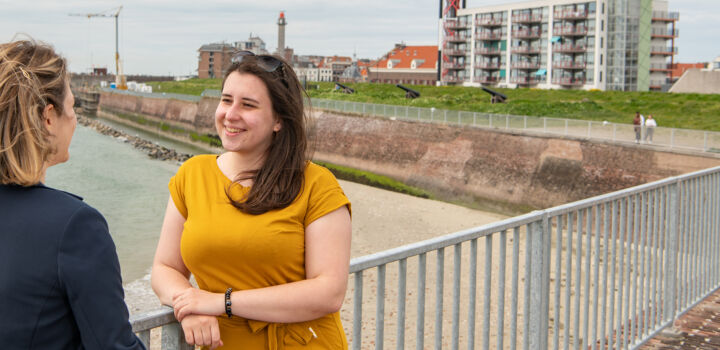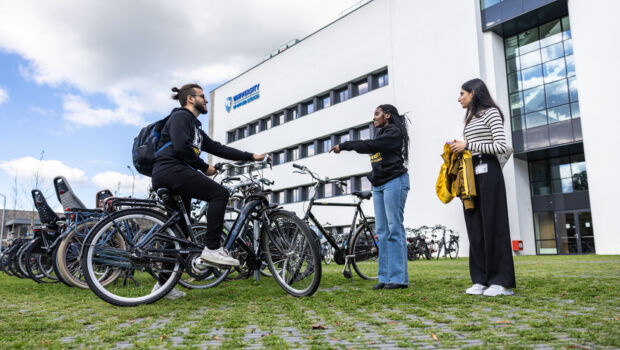Planning to study in the Netherlands? Whether you’re looking to apply or you've already secured your spot at a Dutch university, there are a few important details to sort out before you arrive. Here are six key things you need to arrange to ensure a smooth transition.
1. Apply
Before you can take care of everything else, make sure you’ve completed your application! You can do this easily online via Studielink, the application system for higher education in the Netherlands. Be sure to check the specific admission requirements for your study programme, including deadlines, required documents, and language proficiency tests like IELTS or TOEFL. Applications usually open in October, allowing you to apply even before finishing your secondary education.
Want to know more about our study programmes? Open the brochure2. Arrange housing
Finding accommodation is an important step in your move. There are plenty of options, and the best approach is to start looking early. From student housing to private rentals, there's something for everyone. Explore available housing options to secure your spot.
3. Register at the town hall
One of the first things you'll do during the introduction week is register at the town hall. This process is straightforward as during that first week, staff on campus will be there to assist you on how to make a reservation. Make sure to bring your birth certificate and passport for registration!
4. Set up a Dutch bank account
If you’re not from a Single Euro Payment Area (SEPA) country, consider opening an Student bank account in the Netherlands. Students from SEPA countries can continue using their existing accounts, but if you’re staying for more than a year, opening a Dutch account might be beneficial.
5. Get the right insurance
Having insurance is crucial when moving abroad. If you're from the EU, you can use your European Health Insurance Card (EHIC) or take out insurance in the Netherlands. Non-EU students must get health insurance upon arrival. Companies like AON or CZ offer tailored insurance for international students. Keep in mind, if you plan to work part-time or take on a paid internship, you’ll need to switch to Dutch public healthcare insurance.
Check the international Student Survival Guide
TIP! Check the survival guide for more details on all of these topics we are discussing here (municipality registration, health insurance, dutch bank accounts and more...!)
6. Explore student loans
Worried about financing your studies? The Dutch government offers student loans, even to international students. You can find all the details on the DUO website. The application process can be complex, so don’t hesitate to ask for help to our International Student Service Point by requesting an appointment at issp@hz.nl.
Moving abroad for studies might seem overwhelming, but breaking down these tasks into manageable steps can make the process easier. Start by listing everything you need to do and tackle each task step by step. Give yourself plenty of time to prepare, and don’t worry if you’re handling things last minute—many students have been in your shoes and managed just fine.
Good luck with your preparations, and we hope to see you in the Netherlands soon!

Talk to an advisor
Studying abroad is a big decision to make. You're probably full of questions. Besides leaving your home country, you also have to choose a study programme that suits you, find out all the practical matters about studying abroad and deciding if the HZ is the right university for you. A student advisor might come in handy!
Request a chat





